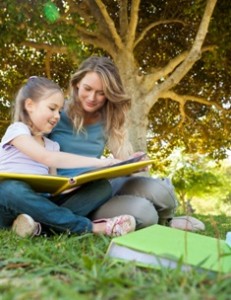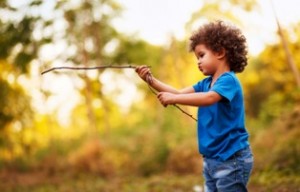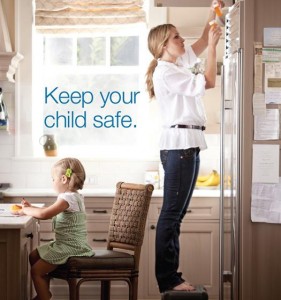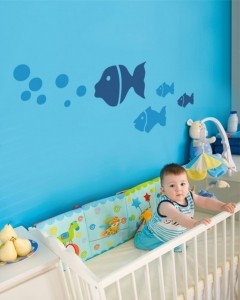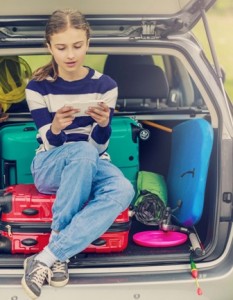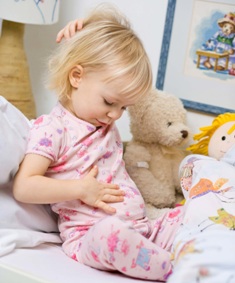 Did you know that your intestinal tract is home to billions of different microbes (known as your intestinal microflora) made up of bacteria, yeast, and fungi? Some of these mi-crobes are bad and can cause illness, but some are good. These good microbes, called probi-otics, have a positive and wide-ranging impact on your overall health.
Did you know that your intestinal tract is home to billions of different microbes (known as your intestinal microflora) made up of bacteria, yeast, and fungi? Some of these mi-crobes are bad and can cause illness, but some are good. These good microbes, called probi-otics, have a positive and wide-ranging impact on your overall health.
We naturally have a mix of both good and bad bacteria in us. When we eat fermented foods, like yogurt or sauerkraut, we ingest more even more probiotic-rich bacteria. Taking probiotics as a supplement, however, is a good idea for most people as the amounts we get from food alone are far lower than therapeutic doses. Even if you think everything feels fine in your gut, remember, probiotics do more than just help keep gas and bloating at bay.
Probiotics are an important part of a healthy body as they:
• Help keep your digestive system running smoothly
• Boost immunity
• Help produce many B vitamins
• Digest lactose and some forms of fiber
• Assist in the digestion and absorption of many nutrients
• Inhibit the growth of bad bacteria
When the number of good bacteria in your intestinal tract is outnumbered by the bad you may experience gas, bloating, diarrhea, and even constipation. These symptoms can range from mild to quite severe. While just getting sick can result in decreased numbers of good probiotic bacteria, antibiotic use is one of the primary reasons that good bacteria gets wiped from our system.
Antibiotics treat bacterial infections, but they don’t discern between good and bad when doing their job; they just kill off all the bacteria. This is why one of the most common side effects of antibiotic use is stomach and digestive system upset. Taking probiotics a few hours away from antibiotic medication, followed up by intensive supplementation after completing your medication will help recolonize your intestinal tract with probiotic bacteria.
Did you know that your intestinal tract is home to billions of different microbes (known as your intestinal microflora) made up of bacteria, yeast, and fungi? Some of these microbes are bad and can cause illness, but some are good. These good microbes, called probiotics, have a positive and wide-ranging impact on your overall health.
While many of us try to avoid using antibiotics unnecessarily on our families and our-selves, there’s no doubt that they have their place, and when used properly can help us feel better when we need them. Overuse of antibiotics has created a whole new strain of antibiotic-resistant bacteria called super-bugs. Antibiotic-resistant infections cause thousands of deaths each year. Probiotics have antimicrobial activity, and some experts believe that they could play an increased role in the prevention and treatment of some of these superbug infections.
Preventing illness in the first place is the best way to avoid the need for anti-biotics. Explain the next measures to your Au pair so that she can help you in your absence Some easy ways to keep your immune system healthy include:
• Washing your hands well (try singing “Happy Birthday” twice!). Stick with soap
and water and avoid antibacterial products. Products marketed as being antibacterial
use Triclosan as the active ingredient, which may do more harm than good.
Studies are starting to come out suggesting that Triclosan may, in fact, be helping to
create some of these superbugs.
• Avoid sugar as it suppresses your immune system for hours after you eat it and feeds
the bad bacteria in your intestinal tract.
• Ensure adequate intake of good quality protein, which is the building block for the
antibodies that fight infection.
• Choose a healthy lifestyle; the activity of natural killer cells is supported by not
smoking, getting enough sleep, regular exercise, and an increased intake of green
vegetables.
• Eat more garlic as it contains allicin, a phytochemical shown to be effective in fighting colds, flus and other illnesses due to its antibacterial and antiviral properties.
• Eating mushrooms like shiitake, cremini and many dried varieties will boost your intake of zinc and selenium, both powerful immune system supporters. Plus, the beta glucans in mushrooms will help regulate white blood cell activity.
Nutrients like vitamin C, the B vitamins, vitamin E, and carotenes are also important for a healthy immune system. Choose to eat a variety of whole, unprocessed foods to maximize your intake of the widest range of nutrients possible. A good idea is to ask your au pair to avoid eating lots of sugary snacks in front of the children.
Making simple changes like the ones above can help boost your immunity, but the infor-mation on how to maximize your intake of probiotic foods can be more confusing than helpful. A quick walk down the aisles of a grocery store would have you believe that eating and drinking certain yogurts, cheeses, juices, and even chocolate bars will get your gut in tip top shape in no time due to their probiotic content. The truth is, not all probiotics are created equally. Bad bacteria feeds on simple sugars so if you’re eating a product laden with added sugars then you’re likely not getting much benefit from the probiotics that have been added. Some of the best natural sources of probiotic bacteria include ferment-ed foods like:
• Plain yogurt (no sugar added)
• Plain kefir, a yogurt type drink traditionally made with dairy, but now also made with coconut, and even water!
• Sauerkraut
• Kombucha tea
• Kimchi
• Some cheeses
If you’re suffering from digestive upset, or trying to replace the good bacteria that has been wiped from your system after taking a round of antibiotics (remember antibiotics wipe out the good and the bad), then the amount of probiotics added to food won’t be enough.
Probiotic amounts in supplements are measured in CFUs (colony forming units) and when shopping for a good quality supplement there are a few things to consider in order to get the biggest bang for your buck.
Potency – make sure you’re getting a minimum of 100 million CFUs per dose.
Storage – most probiotics require refrigeration, although there are some products in “pearl” format that are shelf stable and more suitable for things like travelling.
Expiration date – a good manufacturer will guarantee their potency until the product’s expiry date and will list this right on the packaging.
Probiotics aren’t cheap, but smart shopping will help you navigate the supplement aisles and choose the best product.
There are many different strains of probiotics, known as species. These strains have a variety of therapeutic effects, and some will be more helpful than others when targeting illnesses or symptoms. There are products specifically de-signed for IBS, post-antibiotic use, and bowel disorders. There are also products specifically geared towards children, as children’s intestinal tracts contain different microflora than adults.
When choosing probiotic supplements for your family be sure to choose the appropriate products for your needs, and if you’re con-fused work with a knowledgeable practitioner to help you make the best choice. By taking care of your body with whole foods, making positive lifestyle changes, incorporating more fermented foods, and taking additional probiotic supplements you’ll help keep your intestinal tract feeling its best and boost your overall immunity at the same time.
 A full day of school can use up a lot of your child’s energy. Add in homework and extra-curricular or social activities, and your Au pair can see why adequate rest is important to keep those little bodies thriving.
A full day of school can use up a lot of your child’s energy. Add in homework and extra-curricular or social activities, and your Au pair can see why adequate rest is important to keep those little bodies thriving.

